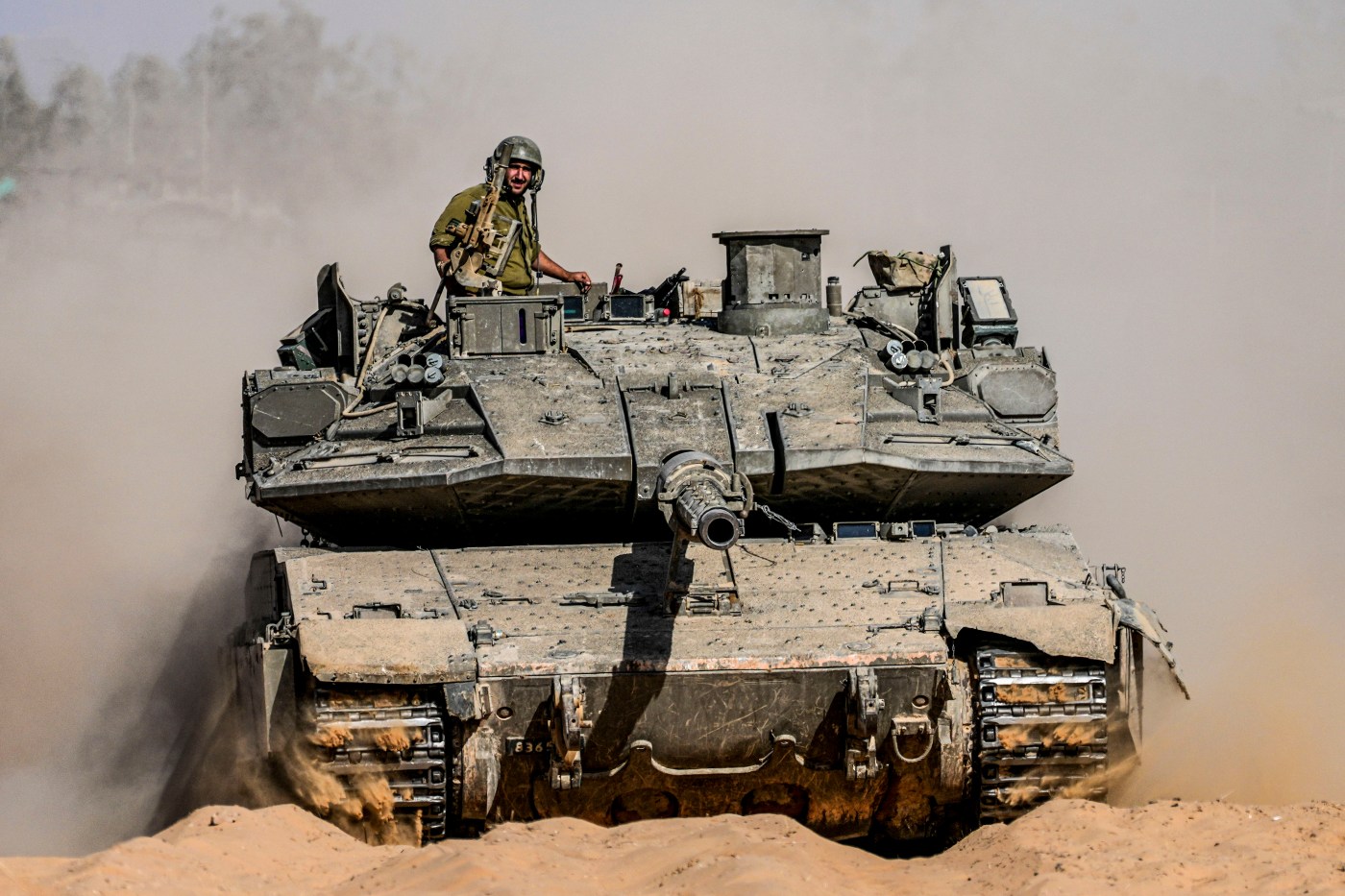
Cease fire talks crash
JERUSALEM — The latest round of Gaza cease-fire talks ended in Cairo after “in-depth and serious discussions,” the Hamas militant group said Sunday, reiterating key demands that Israel again rejected.
After earlier signs of progress, the outlook appeared to dim as Prime Minister Benjamin Netanyahu vowed to resist international pressure to halt the war.
Defense Minister Yoav Gallant claimed Hamas wasn’t serious about a deal and warned of “a powerful operation in the very near future in Rafah and other places across all of Gaza ” after Hamas attacked Israel’s main crossing point for delivering badly needed humanitarian aid, killing three soldiers.
Israel’s military said it believed Hamas was targeting soldiers massed on the Gaza border in preparation for a possible Rafah invasion. Hamas said it targeted soldiers in the area.
But Israeli media reported that CIA chief William Burns, a main mediator in the talks, would meet with Netanyahu on Monday. An official familiar with the matter said that Burns was traveling to meet the prime minister of Qatar, which along with Egypt has been an intermediary dealing with Hamas.
It was not clear whether a subsequent trip to Israel that had been planned would happen. The official spoke on condition of anonymity to discuss the closed-door negotiations.
Israel didn’t send a delegation to the latest talks. Egyptian state media reported that the Hamas delegation went for discussions in Qatar, where the group has a political office, and will return to Cairo for further negotiations on Tuesday.
Another threat to talks came as Israel ordered the local offices of Qatar’s Al Jazeera satellite news network to close, accusing it of broadcasting anti-Israel incitement. The ban did not appear to affect the channel’s operations in Gaza or the West Bank.
Netanyahu, under pressure from hard-liners in his government, continued to lower expectations for a cease-fire deal, calling the key Hamas demands “extreme” — including the withdrawal of Israel forces from Gaza and an end to the war. That would equal surrender after the Hamas attack on Oct. 7 that triggered the fighting, he said.
Hamas leader Ismail Haniyeh in a statement earlier said the militant group was serious and positive about the negotiations and that stopping Israeli aggression in Gaza is the main priority.
But Israel’s government again vowed to press on with a military operation in Rafah, the southernmost Gaza city on the border with Egypt where more than half of Gaza’s 2.3 million residents now seek shelter from Israeli attacks. Rafah is a key entry point for aid.
Kerem Shalom, now closed, is another. The Israeli military reported 10 projectiles were launched at the crossing in southern Israel and said its fighter jets later struck the source. Israel’s Channel 12 TV channel said 10 soldiers remained hospitalized. It was unclear how long the crossing would be closed.
The head of the U.N. agency for Palestinian refugees, Philippe Lazzarini, called for an independent investigation and “accountability for the blatant disregard of humanitarian workers.”
He also said Israel this week denied him entry to Gaza for a second time.
The closing of Kerem Shalom came shortly after the head of the U.N. World Food Program asserted “full-blown famine” in devastated northern Gaza, one of the most prominent warnings yet of the toll of restrictions on aid entering the territory. It was not a formal famine declaration.
In the full NBC interview, WFP chief Cindy McCain said famine was “moving its way south” in Gaza and that Israel’s efforts to allow in more aid were not enough. “We have right now a mass on the outside border, about enough trucks and enough food for 1.1 million people for about three months. We need to get that in,” she said.
Gaza’s vast humanitarian needs put pressure on cease-fire talks. The proposal that Egyptian mediators put to Hamas sets out a three-stage process that would bring an immediate, six-week cease-fire and partial release of Israeli hostages taken on Oct. 7, and would include some sort of Israeli pullout. The initial stage would last for 40 days. Hamas would start by releasing female civilian hostages in exchange for Palestinian prisoners held by Israel.
Netanyahu claimed that Israel has shown willingness to make concessions but “will continue fighting until all of its objectives are achieved.” That includes the stated aim of crushing Hamas. Israel says it must target Rafah to strike remaining fighters there despite warnings from the U.S. and others about the danger to civilians.
In a fiery speech for Israel’s annual Holocaust memorial day, Netanyahu added: “I say to the leaders of the world, no amount of pressure, no decision by any international forum will stop Israel from defending itself.”
An Israeli strike Sunday on a house in an urban refugee camp near Rafah killed four children, including a baby, and two adults, all from the same family, according to Abu Youssef al-Najjar Hospital.
Another Israeli strike on the Nuseirat refugee camp in central Gaza killed at least five people, according to Aqsa Martyrs Hospital, which received the bodies. Israel’s military said it struck a Hamas command center in central Gaza. It didn’t mention casualties.
Israeli Prime Minister Benjamin Netanyahu heads a cabinet meeting at the Defence Ministry in Tel Aviv in January. (Photo by Ronen Zvulun/AFP via Getty Images, File)


